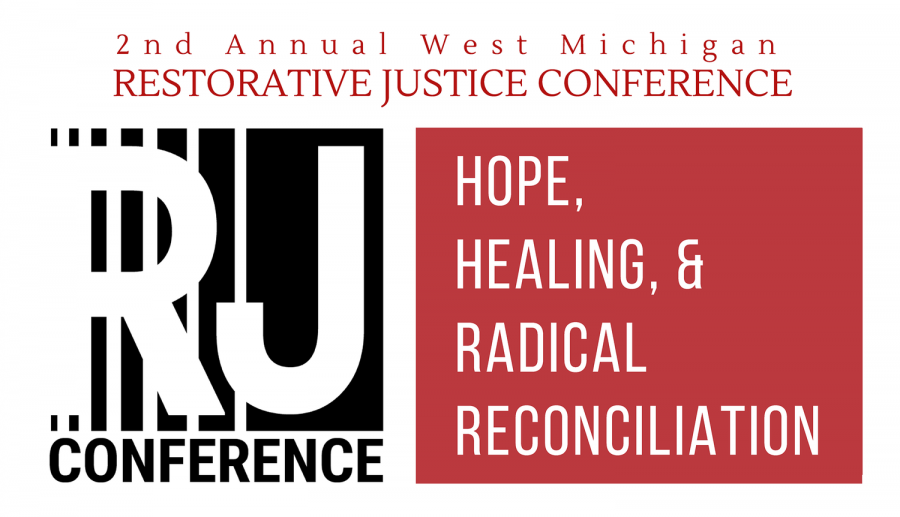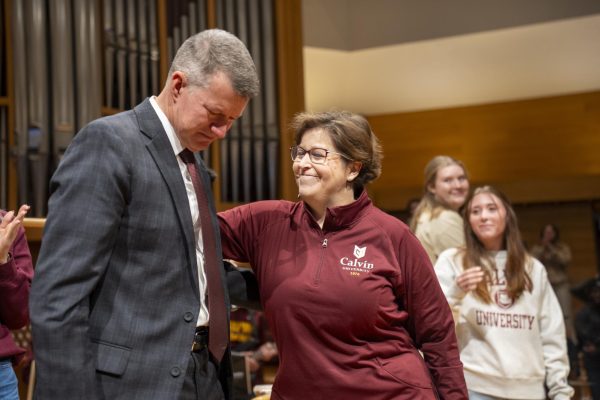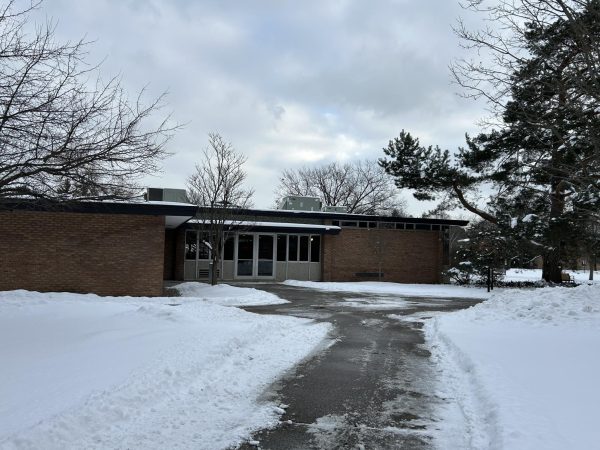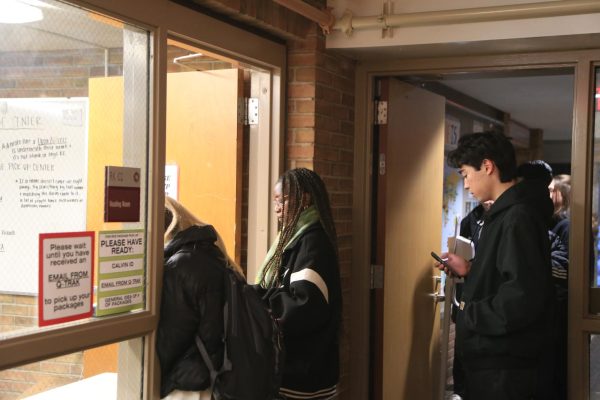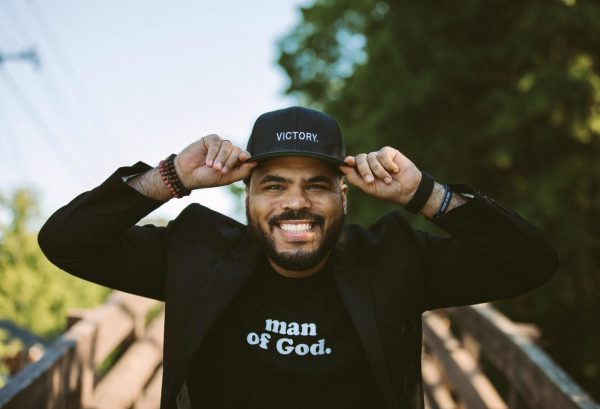Restorative Justice Conference continues conversation about justice practices
People from all over the country gathered at Calvin to discuss the state of our justice system at the Second Annual West Michigan Restorative Justice Conference on Saturday, October 13. Organized by students in the Calvin Prison Initiative program, this year’s conference focused around the theme “Hope, Healing, and Radical Reconciliation.” With a combination of booth-style presentations by local projects and a rich variety of speakers, the conference was able to tackle the issue of restorative justice from many sides. But what should it look like?
“We have understood punitiveness as justice,” Reverend Dominique Gilliard contended during the morning session. In essence, restorative justice is all about changing that.
“It’s not about a crime or an issue. It’s about people and restoring relationships,” explained Father David Kelly, founder and executive director of the Precious Blood Ministry of Reconciliation.
Throughout the conference, restorative justice was discussed philosophically, politically, socially and personally.
“People are finally figuring out that we need to look at crimes as problems that need solutions,” State Representative David LaGrand pointed out in his address. “Criminal justice is the one field where we don’t do outcome testing.”
The conversation about restorative justice is significant at Calvin because of the Calvin Prison Initiative, which is a degree program that works with inmates at the R.A. Handlon Correctional Facility in Ionia to train them as mentors for their fellow inmates. Throughout the conference, the Handlon students introduced each speaker via video.
Tina Murua, facilitator and trainer at the Dispute Resolution Center (DRC) of West Michigan, expressed that the students’ involvement was especially meaningful. “It puts a face on [them],” she said. “That’s what it’s all about — allowing the humanity of everyone to be recognized.”
The introductions, along with prayers and a video performance by the Handlon students’ gospel choir, solidified their presence throughout the conference.
“One thing you did today is you got closer to people that are in prison,” LaGrand remarked. From the reaction of the audience, it would seem that everyone felt that connection.
While the concept of restorative justice is closely tied to the prison and justice systems, it also has far broader implications.
“Restorative justice is relevant whenever someone has wronged another person,” pointed out Yale Divinity School professor Nicholas Wolterstorff.
Murua is just one example of the many applications. Her work with the DRC is based in Grand Rapids area schools and deals with resolving student discipline in restorative ways. “Restoration is not something that we do, it’s something that we are,” she explained.
Restorative justice is also relevant from a community standpoint. One of the many tables at the conference was run by a team of Calvin students presenting their work on the Returning Citizens Services (RCS) Map, which documents and locates various services for former prisoners that are integrating back into their communities. Calvin senior and political science student Annalane Miller described it as a “practical way of bringing justice to convicts by addressing systemic issues.” She explained that while there are many resources for returning citizens, the information is often difficult to work with. Her hope is that the map will make those resources more accessible for people returning from incarceration.
While the conference was certainly both informational and hopeful, the true impact will only be seen going forward.
“[I’m afraid it’s like] preaching to the choir,” Murua remarked. Even though it was well attended, the future of restorative justice is dependent on the involvement of more people and the proliferation of restorative practices.
“As a church, we’ve got to be about living out restorative justice in a real way,” Father Kelly stressed in his presentation. According to all of this weekend’s speakers, in order for our systems’ practices to change, all of society is going to have to be involved in the conversation.



